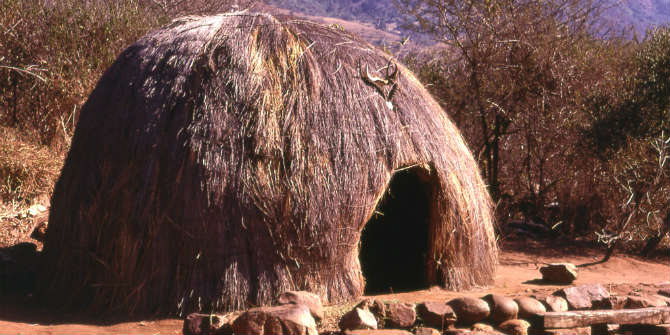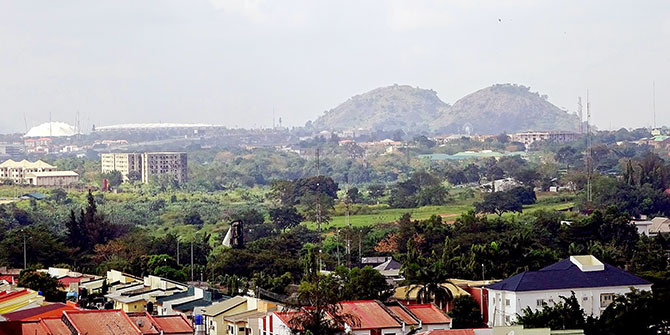Argentina is a strong example of how state action can transform a country’s agricultural sector, writes Wandile Sihlobo.
At the 2016 International Grains Council Conference in London, I sat in admiration as Jesús Silveyra from Argentina’s Ministry of Agriculture presented his country’s ambitious 2020 development plan for the agricultural sector. Silveyra highlighted six important points, namely: Argentina plans to increase its grains and oilseeds production by 50 per cent, increase beef production by 15 per cent, increase forestry production by 80 per cent, increase agro-processing capacity by 8 per cent and improve the rail and road network from outlying areas. All of these plans are intended to increase Argentina’s market share in export markets.
What made Silveyra’s address more interesting is the fact that Argentina has already made great strides in global agricultural markets. The country is the leading global producer and exporter of lemons, soya meal and oil; the second largest global producer of peaches; the third largest global exporter of maize, milk powder and garlic; the fifth largest global exporter of tea and peanuts and the fourteenth largest global exporter of beef. Despite this impressive record, Argentina still has a vision to expand further and increase its influence in export markets.

Photo Credit: marcos HB via Flickr (http://bit.ly/2k45CvA) CC BY-NC-ND 2.0
It is worth noting that over the past few months, Argentina’s agricultural plans have been backed by action. In 2015, Mauricio Macri, then a presidential candidate, promised Argentinian farmers that his administration would deregulate the agricultural markets and eliminate export taxes. After taking office late last year, Macri delivered on his campaign promises and as a result Argentinian farmers are starting to reap the benefits of deregulation as evidenced by expanding production.
Argentina’s 2016/17 sunflower seed production is forecasted at four million tons — up by 40 per cent from the previous season — largely on the back of a 48 per cent increase in the area planted to two million hectares. This expansion is motivated by the recent agricultural market deregulations which have seen the sunflower seed industry relaxing export taxes.
Similar to Argentina, South Africa’s agricultural sector has seen tremendous growth over the recent past, driven by growing export demand and supported by market deregulation. South Africa’s agricultural exports grew from R21 billion in 2001 to R104 billion in 2015. Over the observed period, South Africa’s agricultural exports saw significant growth in African markets, which currently account for 45 per cent of agricultural exports. This growth has largely been on the back of growing export demand for cereals, dairy, fruits and vegetables, vegetable oils and beverages.
Moreover, South Africa’s agricultural exports to the EU have also experienced notable growth, and accounted for 27 per cent of South Africa’s total agricultural exports in 2015. This growth was largely on the back of growing edible fruit and wine exports. Of late, South Africa’s agricultural exports to the Middle-East have also gained momentum, with 2015 exports valued at R6.9 billion from R1.2 billion in 2001. This was largely driven by edible fruits, nuts and beef exports.
Following the same trend, South Africa’s agricultural exports to Asia have also seen significant growth, from levels of R3.6 billion in 2001 to R12.2 billion in 2015. Cereals, frozen fish and sugar have been the key drivers of exports to this region.
Despite the remarkable production and export growth South Africa has enjoyed, we need to remain cognisant of the fact that deregulation is a necessary, but not sufficient, condition on its own for South Africa to achieve global agricultural prominence. South Africa’s agricultural policy needs to take bold leaps similar to those taken by Argentina to fully unlock potential trade benefits.
South Africa has made attempts, such as the crafting of the agricultural development plans, with a key one being Chapter Six of the National Development Plan – “An integrated and inclusive rural economy,” as well as the government’s Nine Point Plan to boost economic growth and create much-needed jobs through “Revitalizing agriculture and the agro-processing value chain.”
In similar fashion to Argentina’s agricultural policy, South Africa’s agricultural development and policy plans intend to bring inclusive growth to the sector, meaning benefits for both commercial and small-holder farmers. They promise development of infrastructure in marginal rural areas, as well as development of agro-processing facilities so that farmers can export value-added products which generate higher revenue.
Although South Africa’s development plans were widely welcomed by both private sector and government, regrettably, little action has been shown thus far. Besides the lack of political conviction, the delay between policy formulation and action can be attributed to challenges such as the 2015/16 drought. Besides the Agri-parks developments across many areas of the country, there is little evidence to suggest that South Africa is taking deliberate action to improve its global agricultural ranking and growth.
It is high time we take a leaf from the book of our South American counterparts, and start crafting practical strategies for each agricultural industry (such as livestock, grains and horticulture, etc.)
Invariably, there will be teething problems on the road to agricultural development, but South African policy-makers should focus on long-term growth strategies that will bring real and tangible growth to the sector.
This article first appeared in the Business Day.
Wandile Sihlobo (@WandileSihlobo) is Head of Economic and Agribusiness Research at the Agricultural Business Chamber (Agbiz) in South Africa.
The views expressed in this post are those of the author and in no way reflect those of the Africa at LSE blog or the London School of Economics and Political Science.





